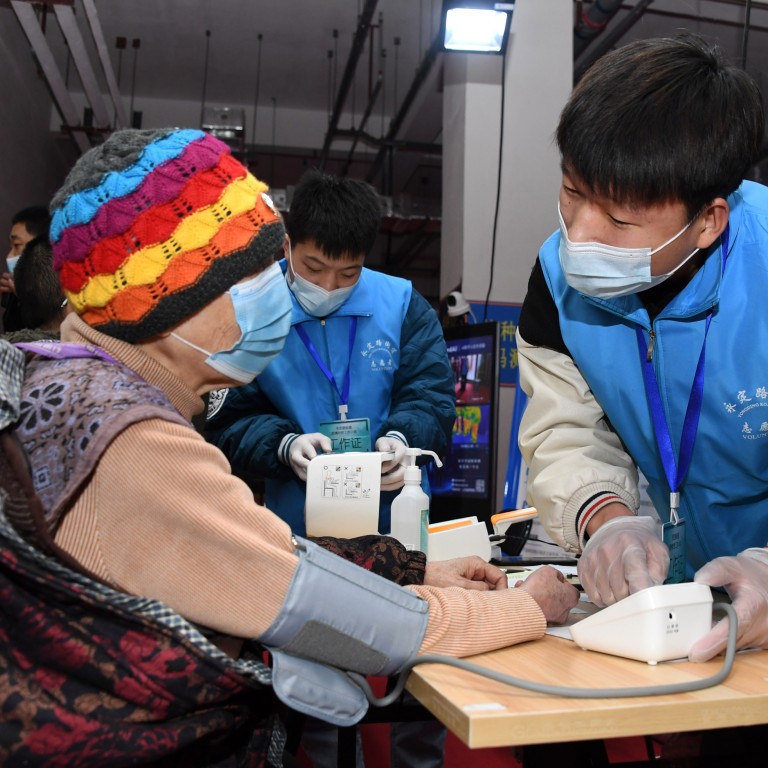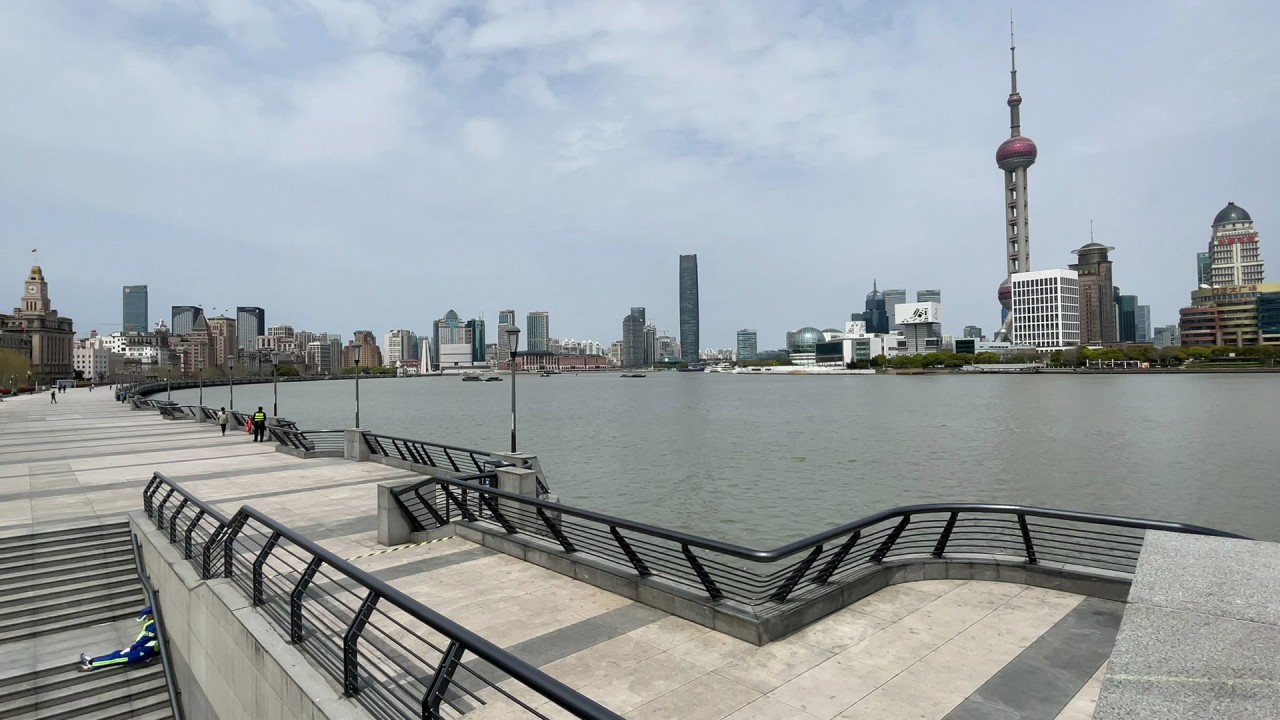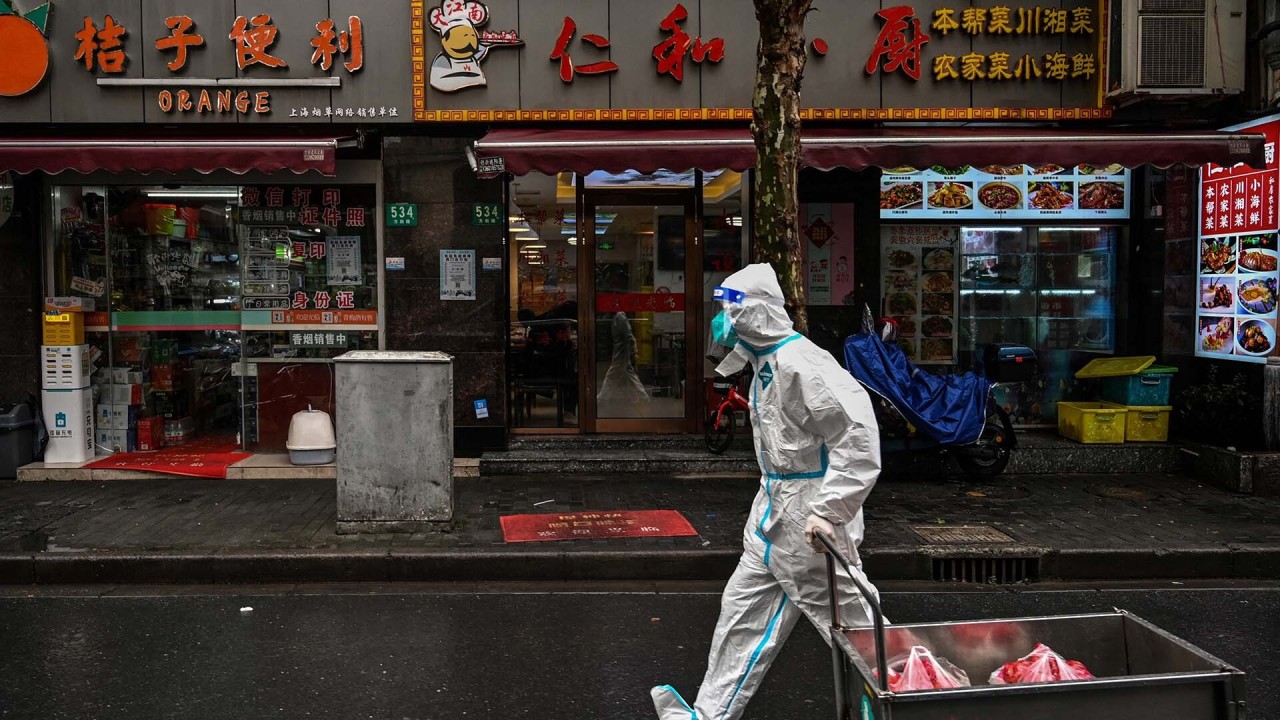
‘Stick to zero-Covid’: Xinhua puts Xi Jinping’s stamp on China’s coronavirus strategy
- State news agency editorial appears to dismiss suggestions that the country should learn to live with the virus
- Xi personally drew up the policy and led the fight for zero-Covid, it says
The editorial by state news agency Xinhua appeared to end suggestions that the country should try to live with Covid-19 after a nationwide spread of the Omicron variant cast doubt on China’s long-standing strategy of mass lockdowns, testing and contact tracing.
It said Xi had personally drawn up the policy and led the fight for zero-Covid.
“Ever since epidemic prevention and control became the norm, General Secretary Xi Jinping has personally directed the deployment of epidemic prevention and control work, and established the general strategy to prevent imported cases and internal rebounds and the general policy of dynamic zero-Covid,” the editorial said, referring to Xi by his Communist Party title.
China has maintained one of the world’s strictest Covid-19 control systems, and had kept the spread at bay until February.
At least 56,000 people have been tested positive for the virus in March, a small number compared with the rest of the world, but the biggest outbreak in the country since the pathogen was first detected in Wuhan more than two years ago.
That containment effort has come at a huge cost – stopping transport services and sometimes confining more than 10 million people to their homes has disrupted economic activity.
Most foreigners are also still banned from entering China, and returning Chinese can face up to 28 days in a quarantine hotel.
Despite that, the “overall strategy” of zero-Covid is here to stay.
“From the beginning to the end, we must adhere to the principle of putting people first and putting lives first,” Xi was quoted as saying.
“We must adhere to a zero-Covid strategy that is scientifically precise and dynamic to suppress the spread of the epidemic as soon as possible.”
Shanghai lockdown needed to stop ‘serious’ community spread, experts say
The highly transmissible Omicron sub-variant BA.2 is driving China’s latest wave of infections, with Shanghai and the northeastern province of Jilin particularly hard hit.
Local authorities have also offered 140 billion yuan (US$22 billion) in tax incentives, fee cuts and rent exemptions to help businesses survive the lockdown.
The cost of lockdowns is high, but concerns of uncontrolled spread remain because of a low vaccination rate among the elderly.
The NHC said that more than 87 per cent of the Chinese population had had two doses of Covid-19 vaccines but that did not include more than 52 million people over 60.
The threat to the elderly is apparent in Hong Kong where 72.2 per cent of the over-60s who have died in the city’s latest wave were unvaccinated. The city has a Covid-19 death rate of 25 per 100,000 residents – the highest in the world.
“The epidemic in Hong Kong has taught us a particularly profound lesson, as well as an example – that severe cases and deaths will be high if vaccination rates are low,” NHC official Wang Hesheng said earlier this month.
Jin Dongyan, a virologist with the University of Hong Kong, said unvaccinated elderly people were a major concern on the mainland because authorities wrongly believed that jabbing the young would ensure enough herd immunity to prevent infection among the old.
“They did not [vaccinate the elderly] aggressively and sufficiently early,” he said. “But they still have a window of time. They should do it very, very aggressively now.”
The Xinhua editorial stressed that China would expand its vaccination drive for the elderly but offered no specifics.
Jin said the zero-Covid strategy was still a “guiding principle” in China, and public health professionals could not publicly advocate for living with the virus because of politics.
He said the approach was impossible to sustain.
“In the long run, it’s harmful,” he said. “You just have to live with it. And it’s already very, very mild and no longer that harmful.
“If you can have more than 90 per cent vaccination rate in the elderly, then the communities are safe. That’s a very important message for them to learn.”



